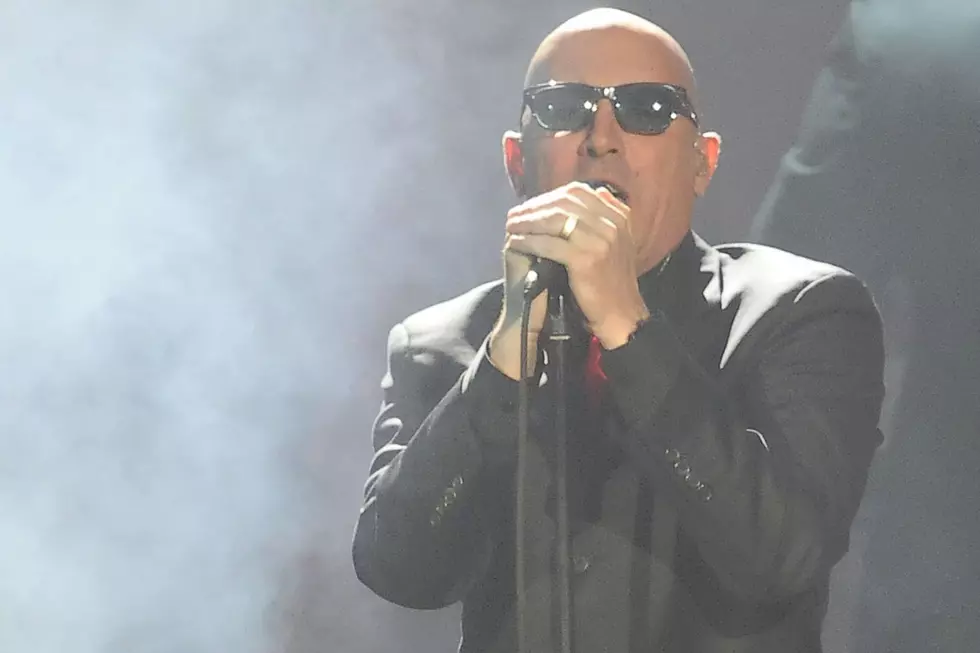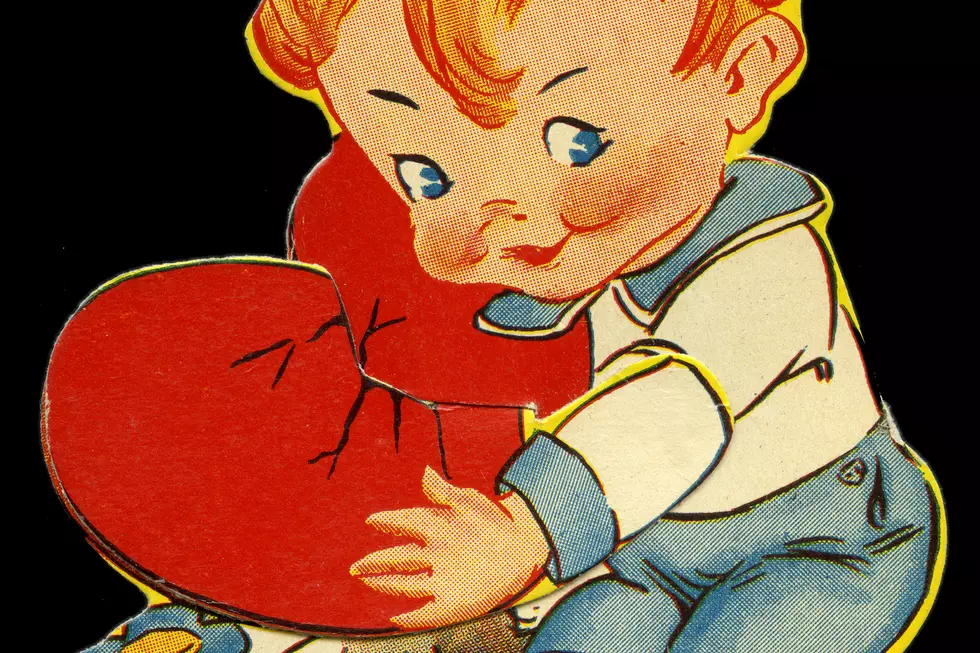
10 Bands You’ve Never Heard but Really Should
It's probably safe to say that most of the groups found on our list of 10 Bands You've Never Heard but Really Should are new to you. They all have familiar stories: artists that time forgot, the songs that got away, the brave souls who flew just beneath the radar. We've plucked a few of these forgotten names from obscurity in hopes that you'll track down their music and open your ears to wonderful new worlds.
The Pink Fairies
Bands like Hawkwind, the Deviants and the Pink Fairies were all spawn of the late-'60s counterculture: the excess of LSD, loud guitars, hedonistic hobbies and a general sense of anything goes. More than the other two bands, the Pink Fairies possessed a no-frills, full-speed-ahead approach. Their guitars were loud and their attitude was louder. Their 1971 debut album, 'Never Never Land,' is a perfect bridge between the decades, with the idealism of the '60s giving way to the punks' f--- you attitude a few years later. 'Do It' overflows with attitude and power, while 'War Girl' shows off the band's more mellow side. On their third album,' Kings of Oblivion,' everything gelled, resulting in one of the most perfect albums of the decade. Guitarist Larry Wallis would join Lemmy Kilmister to form the original Motorhead lineup, another band that knows a few things about loud music.
The Teardrop Explodes
While Julian Cope isn't exactly a household name, he did make some small inroads later on. But the band he sprang from, the Teardrop Explodes, remains massively unknown by those who weren't around at the time. Formed in 1978, they released only a handful of singles and two albums before disappearing. Their debut album from 1980, 'Kilimanjaro,' is a dynamic synthesis of post-punk and psychedelia, with a genuine pop sensibility. The band scored a couple of hits in its U.K. homeland but failed to be anything more than a college-radio curiosity in the U.S. Their second and final album, 'Wilder,' is their masterpiece. Stringing together an even wider array of influences, Cope and company overreach but deliver pristine pop melodies and razor-sharp rockers.
The Crunch
You want a modern day supergroup? Try the Crunch. Formed in 2012 by Sulo of the Diamond Dogs (another band you should hear), they play back-to-basics rock 'n' roll with catchy songs, attitude and experience. Joining Sulo on this adventure are bassist Dave Treguna (Lords of the New Church, Sham 69), drummer Terry Chimes (the Clash) and guitarist Mick Geggus (the Cockney Rejects). Elements of all their past bands meld together for a sound that's both contemporary and classic. The reason it works, besides the impeccable pedigree, is that Sulo writes great songs. Check out 2013's 'Busy Making Noise' for proof.
Heavy Metal Kids
Heavy Metal Kids were a bunch of street-level hooligans disguised as a rock 'n' roll band. (Or were they a rock 'n' roll band disguised as a bunch of street-level hooligans?) The group formed in 1973 and recorded a self-titled debut album the following year. Led by the charismatic Gary Holton, the band's style fell somewhere between the raunchier side of the Faces and Slade, with a heaping dose of the Sensational Alex Harvey Band's piss and vinegar mixed in. They're sorta the bridge between glam and punk, thanks to Holton's over-the-top personality. They didn't altered their style much for their second album, 'Anvil Chorus,' but they did drop the Heavy Metal part of their name, rechristening themselves as the Kids. If the record had come out two years later, they would have been lumped in with the burgeoning punk scene because of its snotty vocals and raw rock 'n' roll. Unfortunately, Holton died in 1985 of a drug overdose.
Thin White Rope
Hailing from Davis, Calif., Thin White Rope couldn't be slapped with a convenient label. Their sound stretched from desert haze to city grit, from the cool of the evening to blistering sun-soaked days. It was all encompassing, thanks to their sharp guitars -- dreamlike one moment, brutal the next. Over the course of five albums and a few EPs, their sound evolved but never moved into the mainstream. It's perhaps best summed up by their choice of cover songs, which ran the gamut from Nancy Sinatra to Can.
The Soft Boys
Robyn Hitchcock is considered by many to be one of the all-time greatest singer-songwriters. In 1977, he and some friends formed the Soft Boys, a short-lived but highly potent musical ensemble whose debut album, 1980's 'A Can of Bees,' is a wonderful merging of Beatles pop sensibility and Captain Beefheart-style aggression, with some tasty Syd Barrett-like flashes mixed in for good measure. Their second offering, the 'Underwater Moonlight,' is a near-perfect album -- from the stunning opener 'I Wanna Destroy You' to the final cascade of the title song. For a very brief moment in the '80s, Hitchcock seemed on the verge of mainstream success with a major label behind him, friends in high places (R.E.M. were huge fans) and strong college radio support. But he's remained a cult figure after all these years. The Soft Boys is where it all starts.
The Motors
As the dust settled from the early-'70s U.K. pub-rock scene, things moved on to a more no-frills approach with bands like Dr. Feelgood and the Count Bishops. It's no secret that many of the original punk bands had either served time with, or had been fervent followers of, many of those pub-rock bandst. Ian Dury and Joe Strummer both came from that world. The Stranglers often shared bills with pub rockers, and Nick Lowe's band Brinsley Schwarz were early kings of the scene. It's from the ashes of another ace pub-rock band, Ducks Deluxe, that Nick Garvey and Andy McMaster formed the Motors in early 1977. Joined by drummer Ricky Slaughter and guitarist Bram Tchaikovsky, the Motors took pub music's grit, mixed in some keen pop sensibilities and, with hard-edged production (from pre-Def Leppard Robert John 'Mutt' Lange), they landed on the perfect combination. Their self-titled debut album is stocked start to finish with blistering gems like 'Dancing the Night Away,' 'Summertime Is Calling' and 'Phoney Heaven.' Their second record, 'Approved by the Motors,' followed a similar path, but by the third album, 'Tenement Steps,' Tchaikovsky had split for a solo career, and Garvey and McMaster started piling keyboards onto their music. But for a brief, shining moment, they were really something special.
Celebrity Skin
Talk all you want about hair metal and the Sunset Strip scene of the '80s. It was mostly a lame mix of fluff songs and tired cliches. If you want a real connection to glam rock's glory days, look no further than Celebrity Skin. They combined a larger-than-life image with a sense of humor, and applied all that to some insanely catchy songs -- kinda like the bastard offspring of the Sweet and the Sex Pistols. Their live shows were legendary, gaudy and ridiculous, complete with costume changes. Drummer Don Bolles had previously been a part of the Germs, one of the most notorious bands from L.A.'s early punk scene, and the band had ties to other notables like the Dickies and Pat Smear (the ex-Germ who later joined Nirvana and the Foo Fighters). Singer Gary Celebrity was the perfect master of ceremonies, and Jason Shapiro (who now plays in Redd Kross) is one of the era's greatest unsung guitar heroes. From their amazing rendition of Abba's classic 'S.O.S.' to their own great songs like 'Hello' and 'Evicted,' Celebrity Skin deserved a bigger audience. By 1990, they fell apart after a handful of records and shows.
Groovy Uncle
Glenn Pragnell is a renaissance man of sorts. Carving a musical path with the Kravin' A's in the '90s, he was a key player in England's mighty Medway rock 'n' roll scene, which included bands like the Milkshakes, Thee Mighty Caesars and the Prisoners. Their style was firmly rooted in the British Beat boom of the early '60s, which Pragnell had down cold. But he's also a top songwriter with a knack for catchy melodies and smart lyrics. His music may be full of shades from the past, but it somehow still sounds fresh. Groovy Uncle were formed in 2010, and since then they've released a few singles and three albums.
Giuda
Hailing from Italy, Giuda (pronounced Judah) are about the most unexpected band making music in 2014. They appropriate the sound and style of vintage glam (Slade, Gary Glitter, Sweet and so on), but they take it out of the costume shop and place it in the hands of street urchins. They dress like very early Slade: laced-up boots and corduroy as opposed to platform boots and glitter. Their songs are short, sweet and to the point. There's no time for massive guitar solos, or egos, because they're too busy kicking out the jams. Their debut album, 2012's 'Racy Roller,' looks and sounds like some long-lost artifact from 1973, but on their latest effort, 'Let's Do It Again,' they tighten up a bit and lighten up the overt references to that past era. Either way, even without the platforms, they tower high above everyone else.
More From Diffuser.fm









